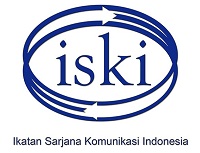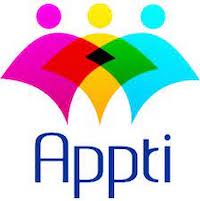Keberadaan Radio Komunitas sebagai Eskalasi Demokratisasi Komunikasi pada Komunitas Pedesaan di Jawa Barat
Abstract
Keywords
Full Text:
PDF (Bahasa Indonesia)References
Astraatmadja. Atmakusumah. 2000, “Local Community Papers and Radio Stations egional TV Stations could help the Poor” Presentation at The Ramon Magsaysay wardees eeting Taipe, Taiwan.
Badan Informasi dan Komunikasi Nasional (BIKN). 2000. Karakteristik Media dan Khalayak Layanan. Laporan Penelitian. Jakarta.
Creswell, John.W., 1994. Research Design, Quantitative & Qualitative Approaches, terjemahan, Nurkhabibah, KIK Press Jakarta, 2002.
—————. 1998. Qualitative inquiry and Research Design Choosing Among Five Traditions. London. New Delhi: Sage Publications. Combine Resources Institution (CR1),
“Perkembangan Radio Komunitas di Indonesia dalam Konteks Makro”, Makalah seminar hasil penelitian, Jakarta.
Fraser, Cohn & Sofia Restrepo Estrada. 2001. Buku Panduan Radio Komunitas. Penerjemah Tim Jaring line, Penyunting Tim Komunikasi UNESCO, Jakarta.
—————. 1993. Menuju Masyarakat Komunikatif, Ilmu, Masyarakat, Politik & Postmodernisme menurut Jurgen Habermas. Yogyakarta: Penerbit Kanisius.
Huntington, Samuel P., & Joan M. Nelson, 1984. Partisipasi Politik di Negara Berkembang. Jakarta: PT Sangkala Pulsar.
Ibrahim, Marwah Daud. 1994. Teknologi Emansipasi dan Transendensi, Wacana Peradaban dengan Visi Islam. Bandung: Mizan.
Lembaga Informasi Nasional (LIN). 2001. Pengembangan Informasi Umpan Balik Mengenai Layanan dan Aturan Pemerintah. Jakarta: Laporan Penelitian.
McQuail, Denis. 1987. Mass Communication Theory, Second Edition, Diterjemahkan Agus Dharma,& Aminuddin Ramm, 1994. Jakarta: Penerbit Erlangga,
Murdock, G. & Golding P. 1989. “Information Poverty and Political inequality: citizenship in the age of privatized communications.” Journal
Communication, 39 (3).
Yoon, Suk-Hong & Park, Jae-Yung, 2001, “Attitudes of Korean Journalist and Journalism Educators toward Civic Journalism”. Korean Journal of Journalism & Communication Studies, Special English Edition.
DOI: https://doi.org/10.29313/mediator.v6i2.1190
Refbacks
- There are currently no refbacks.

This work is licensed under a Creative Commons Attribution 4.0 International License























